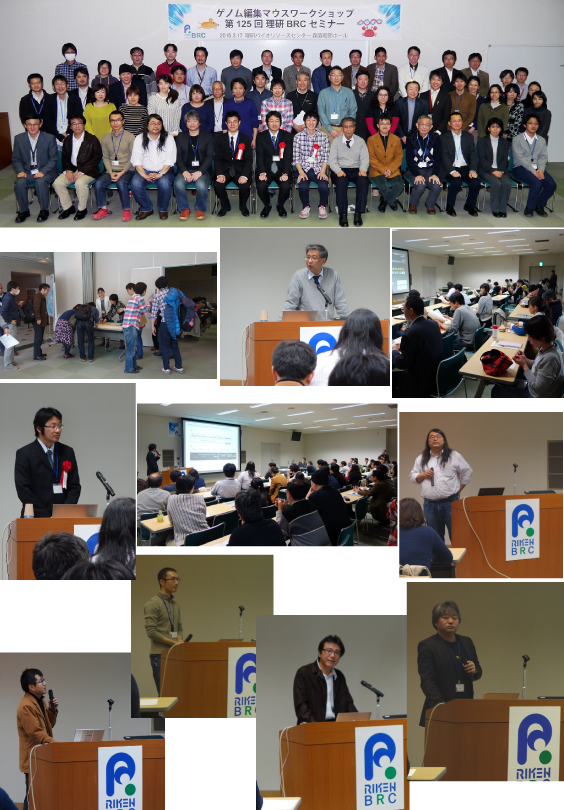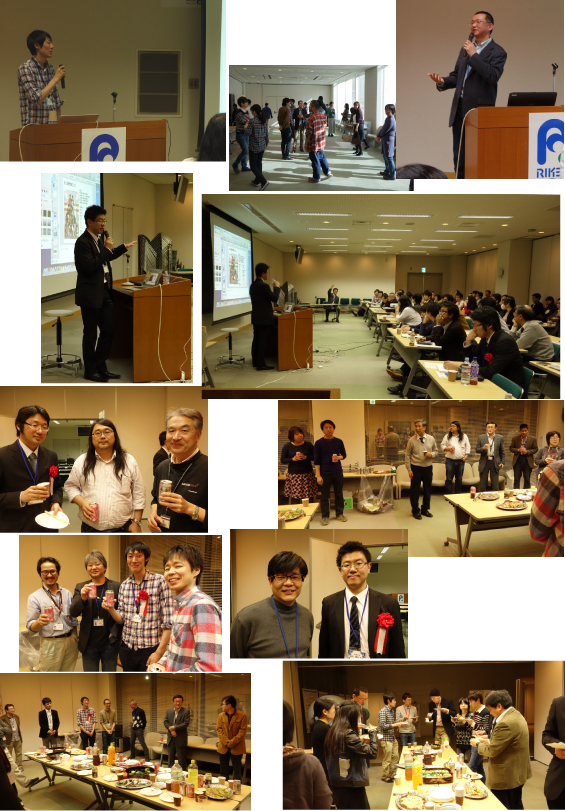Photo Album 2015
The Lab Tour for Goshogawara High School Students (Dec. 2015)
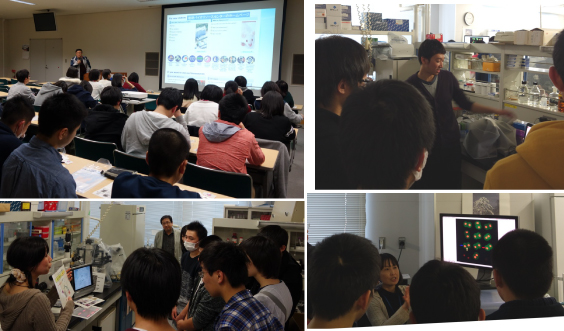
The Year End Party (Dec. 2015)
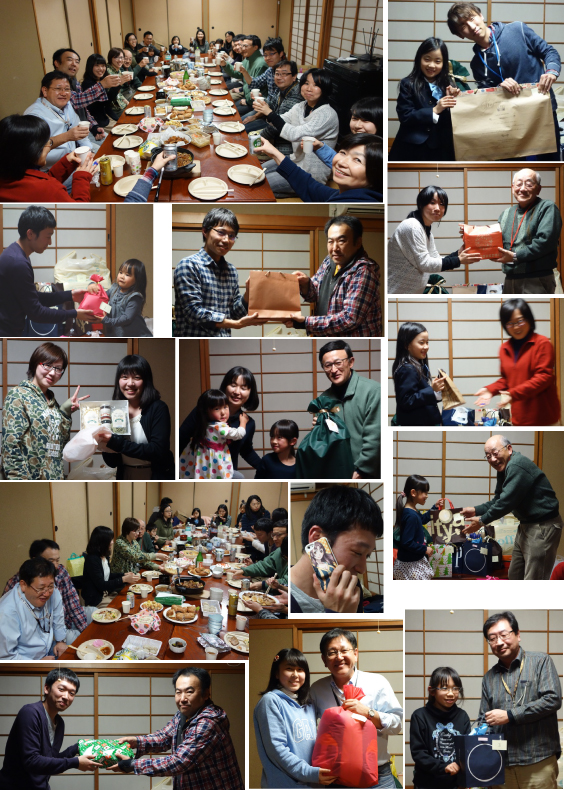
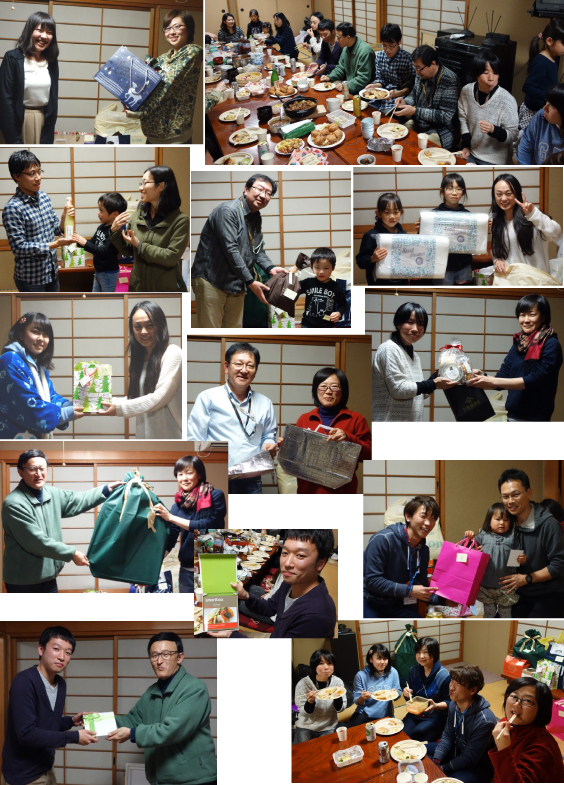
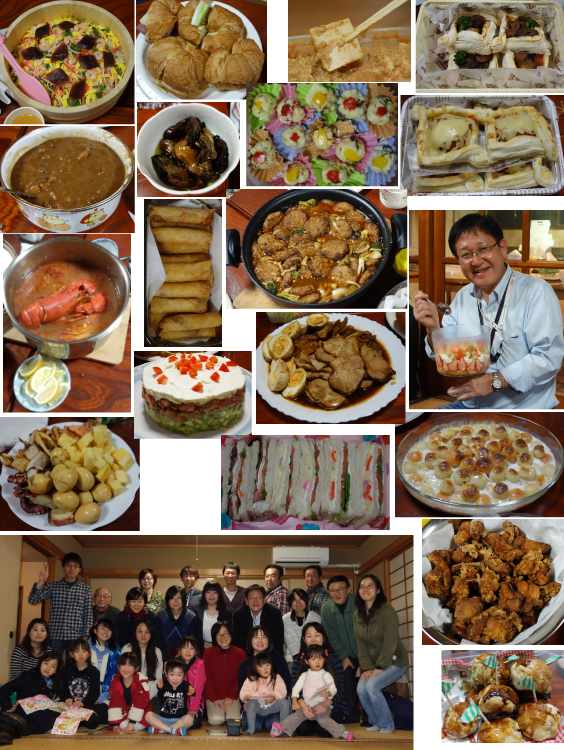
The 1st Wakate Exchange Party (Dec. 2015)
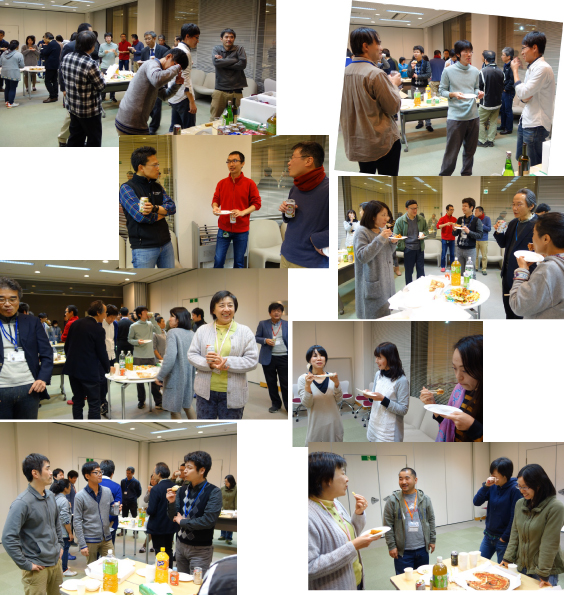
Technical Training Course for ICSI (sperm injection) (Nov. 2015)
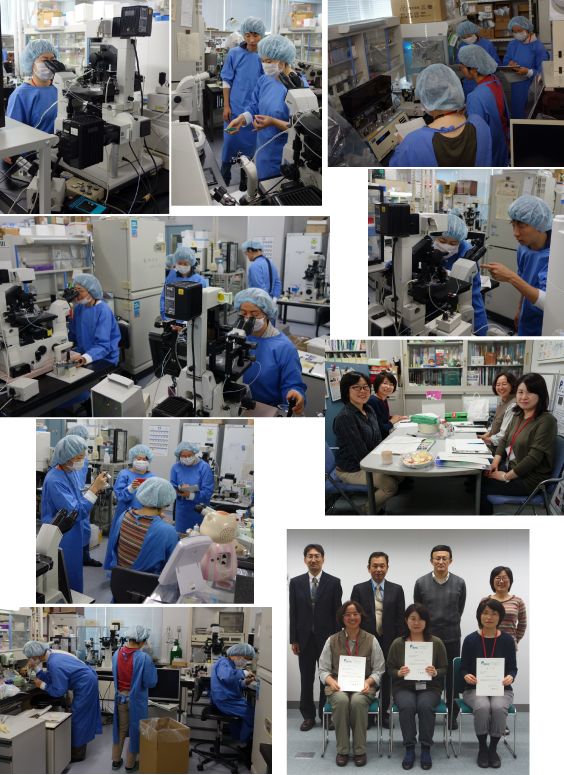
The 132nd BRC SEMINAR (Oct. 2015)
Dr. Yosiyuki SEKI
Department of Biomedical Chemistry,
Kwansei Gakuin University
Title: “Molecular mechanism and artificial regulation of epigenetic reprogramming
in mouse primordial germ cells”
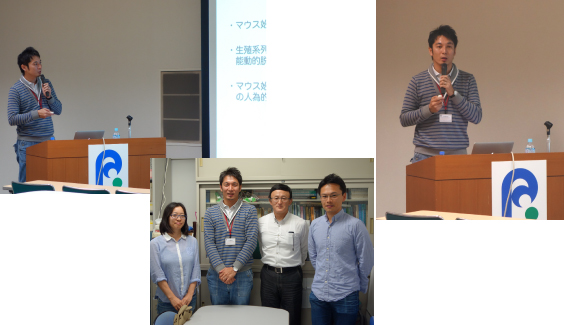
A Lecture for Tsukuba University Students (Sep. 2015)
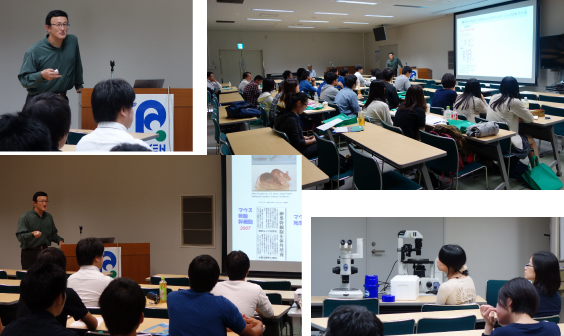
The 130th BRC SEMINAR (Sep. 2015)
Dr. Yasuhiro YAMAUCHI
Institute for Biogenesis Research,
School of Medicine/Anatomy,
University of Hawaii
Title: “The roles of Y-linked genes in male reproduction in mice”
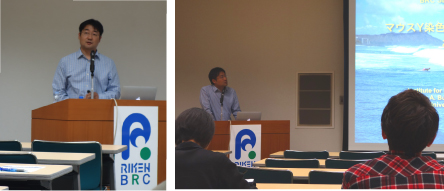
The 108th SRD Annual Meeting -Miyazaki- (Sep. 2015)
Ms Ayumi HASEGAWA Won the JRD Outstanding Paper Award (2014).
Title: “Microdroplet In Vitro Fertilization Can Reduce the Number of Spermatozoa Necessary for Fertilizing”
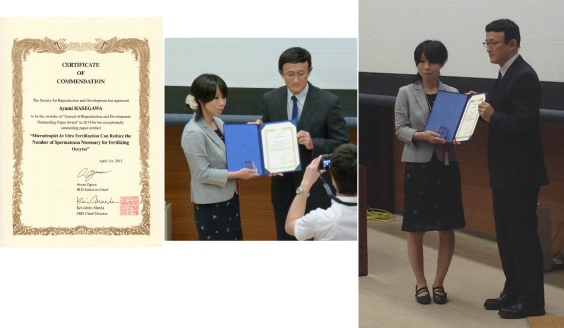
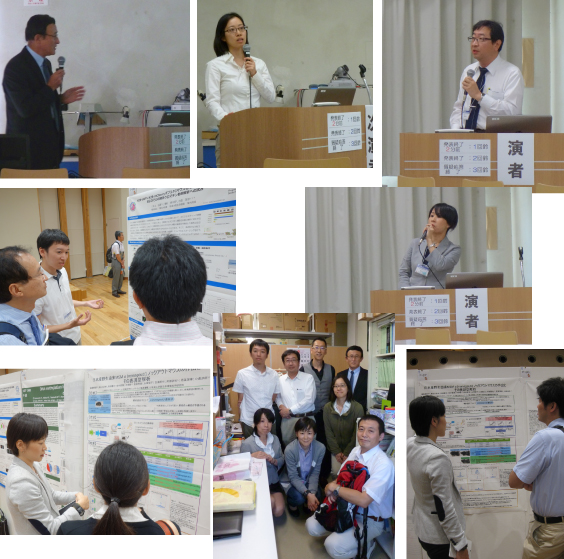
The 40th Naito Conference -Sapporo- (Sep. 2015)
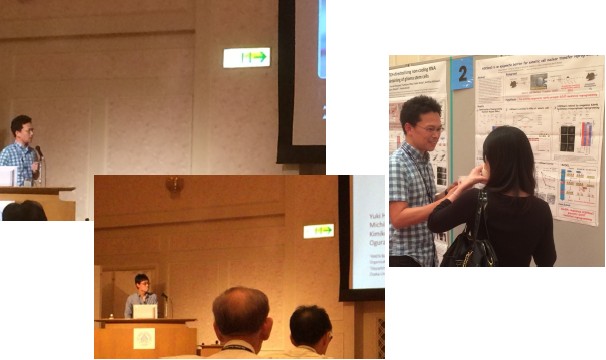
The Lab Tour for Takamatsu-Kita High School Students (Aug. 2015)
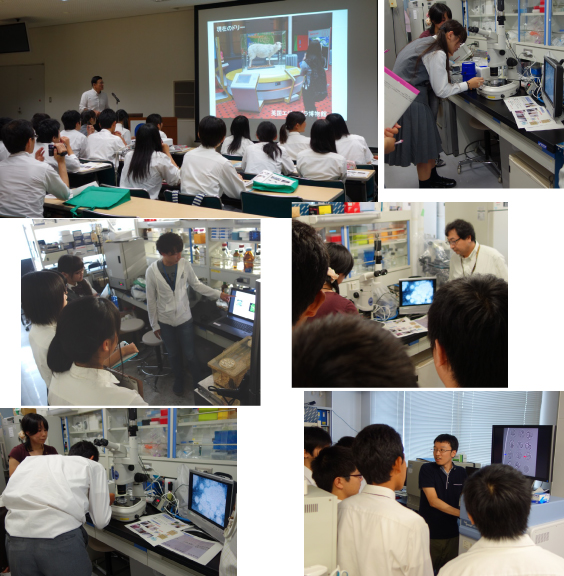
Technical Training Course (Aug. 2015)
We accepted a student trainee from Miyazaki University (Prof. Koshimoto). She practiced the basic techniques of mouse embryo manipulation and finally succeeded in embryo transfer by herself.
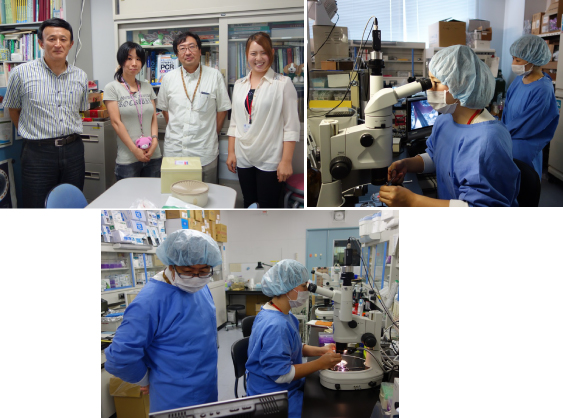
Tsukuba Chibikko Hakase (Jul. 2015)
Tukuba Chibikko Hakase is a science learning event featuring exhibitions
and events held at research institutes located in Tsukuba, which attempts
to encourage local elementary and junior high school students. BRC
also participants in the event.
Theme:Watch the beginning of life!
Number of participants: 30
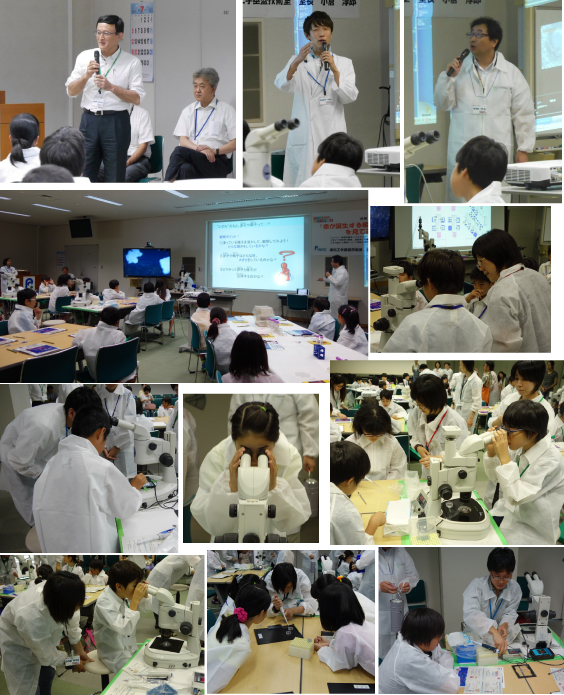
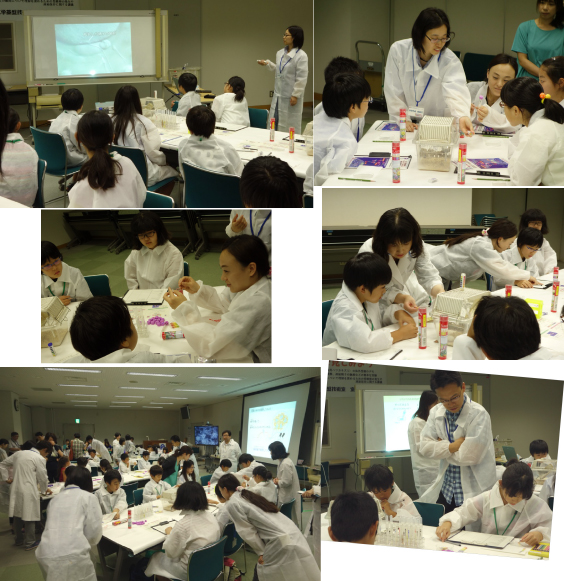
Visiters from Seoul Univ. and the 129th BRC SEMINAR (Jul. 2015)
Prof. Byeong Chun Lee, Prof. Junpei Kimura, and two researchers from Seoul University, Korea, came to our laboratory to see our mouse cloning experiment.
Prof. Lee kindly gave us a lecture on dog cloning at the BRC seminar. He first
succeeded in cloning dog (Nature 2005) and has been one of the top scientists
in the field of dog and pig cloning.
Byeong Chun Lee, DVM, Ph.D.
Professor, Dept. of Theriogenology and Biotechnology
College of Veterinary Medicine,
Seoul National University
Title: Ten years progress after first clone dog “Snuppy”
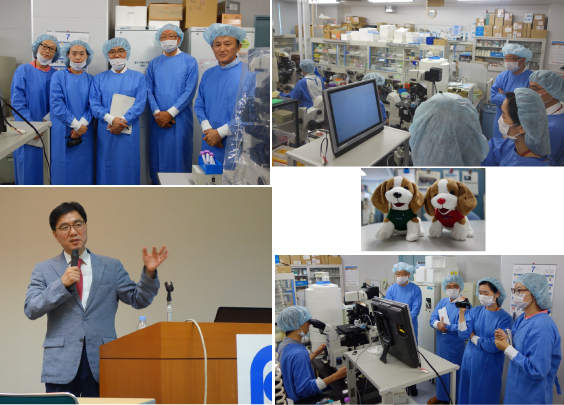
RIKEN SEMINAR <2nd Epigenetics Seminar Series 2015>(Jun. 2015)
Prof. Fugaku AOKI
Graduate School of Frontier Sciences,
The University of Tokyo
“What is totipotency?”
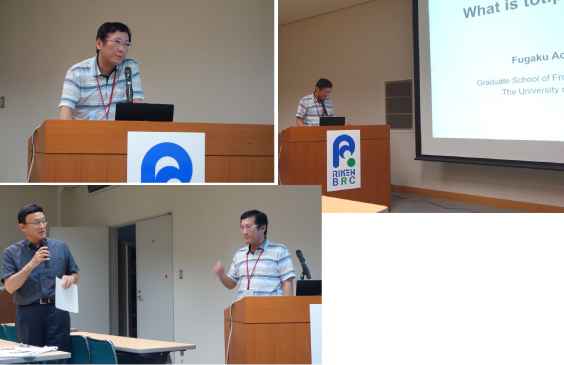
The 127th BRC SEMINAR (Jun. 2015)
Tsutomu ENDO, Ph. D.
Postdoctoral Associate,
David Page Laboratory, Whitehead Institute, MIT
“Mechanism of a retinoic acid signaling and its induction to determine the cycle of spermatogenesis in testes”
Shogo MATOBA, Ph. D.
Postdoctoral Fellow,
Harvard Medical School/ Boston Children’s Hospital
“Histone H3-Lysine 9 Trimethylation Is an Epigenetic Barrier for Somatic Cell Nuclear Transfer Reprogramming”
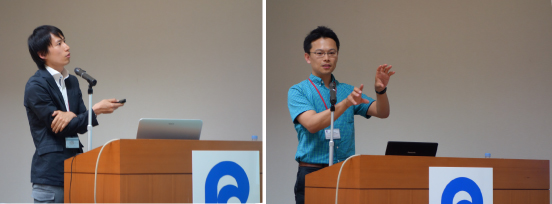
The 62nd Annual Meeting of JALAS (May 2015)
Michiko HIROSE
Generation of nonagouti (a) mutant MSM/Ms mice by the CRISPR/Cas9 system and their characterization
Ayumi HASEGAWA
Effective superovulation method in inbred mouse strains by synchronization of estrus cycles
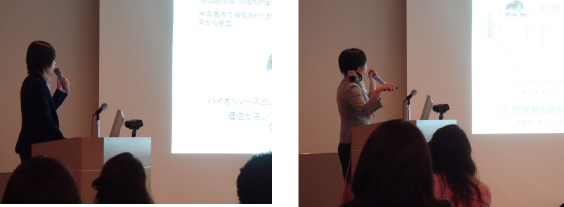
A Lecture for TsukubaShuei High School Students (May 2015)
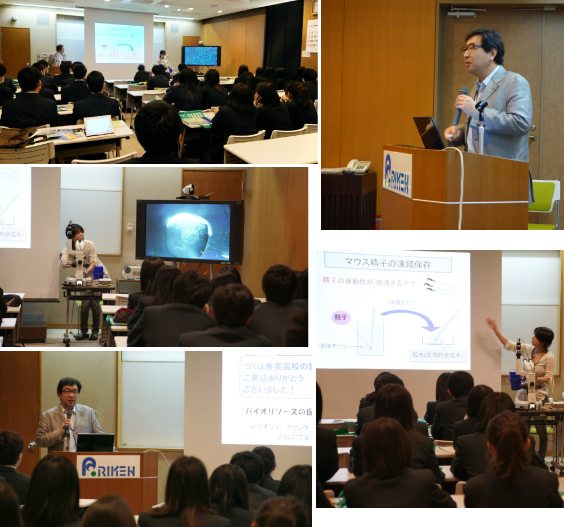
RIKEN Tsukuba Open House (Apr. 2015)
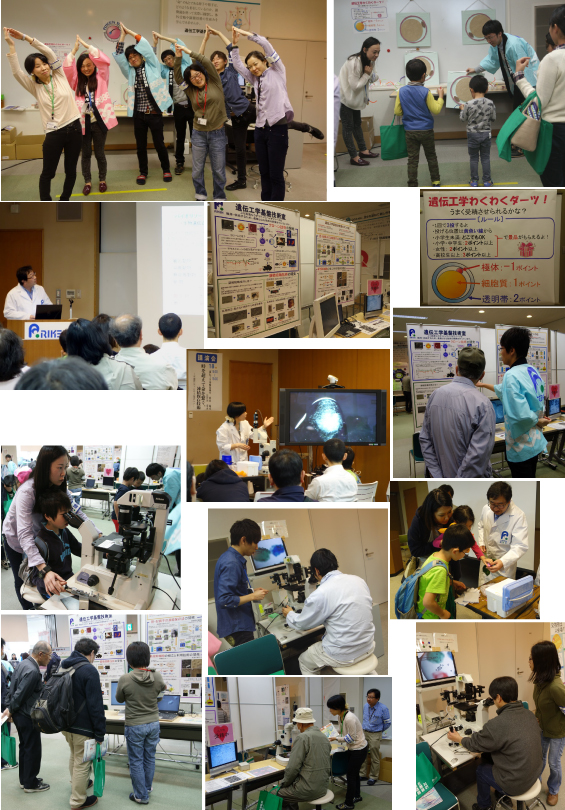

The 6th RIKEN Technology Incentive Award was given to Ms Michiko HIROSE (Mar. 2015)
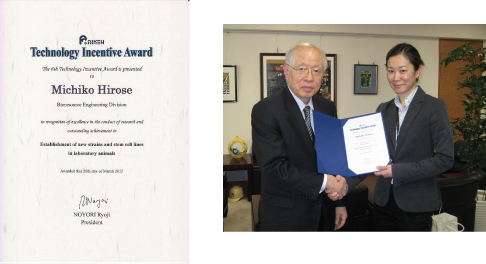
Mouse Genome Editing Workshop (Mar. 2015)
On March 17th, Mouse Genome Editing Workshop (conjunction with 125th BRC Seminar) was held at Moriwaki Kazuo Hall.
The event consisted of nine lectures on the topic, including three guest speakers (see below) and six speakers from RIKEN branches/centers.
We also enjoyed a post workshop party making discussions on topics related to the genome editing for mice. Over 80 people participated the event, reflecting the high interest in this technology.
“Genome editing with Platinum TALENs and multiplex CRISPR/Cas9 vector
system”
Dr. Tetsushi Sakuma
Department of Mathematical and Life Sciences, Graduate School of Science, Hiroshima University
“High-throughput genome editing for mice by electroporation”
Dr. Masakazu Hashimoto
Graduate School of Medicine, Chiba University
“Generation of humanized animal models via chromosome engineering
technology and the application”
Yasuhiro Kazuki
Graduate School of Medical Science, Tottori University
